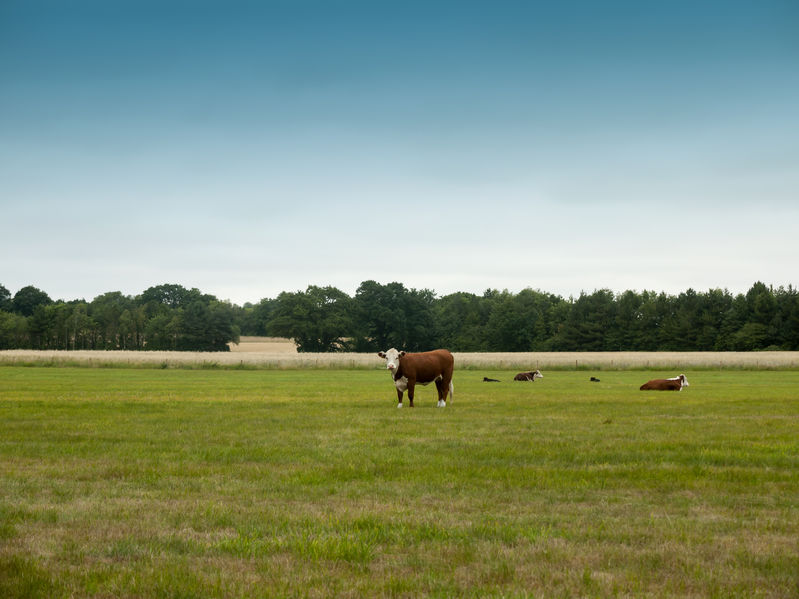
Blog writer and PhD researcher Charlotte Chivers has weighed up the debate raging against farmers and vegans. Is it an healthy debate or all-out war? In her online blog, she writes the following...
This is a very contentious subject which invokes strong emotions from both sides of the argument.
I am sick of seeing nasty narratives coming from both vegans and farmers.
The most frustrating part is that we’re talking about a tiny minority of both groups; most vegans are peaceful and non-judgemental, and most farmers are just doing their best to feed the country, with most genuinely caring about their animals.
I’m not against a healthy debate to express your views, but recently the rhetoric has been all-out war and that’s not productive.
Offending farmers by calling them ‘Nazis’ and ‘Rapists’ or threatening to spike vegans’ food with meat is just going to further alienate the opposition; this is not a productive way of debating.
Vegans

On the one side, we have vegans who don’t consume any animal products at all with reasons varying from ethics, welfare, perceived health benefits (it’s harder to be healthy as a vegan but it is absolutely possible), personal preferences, and sustainability.
One thing I will point out is that the majority vegans probably aren’t completely animal product free as it’s practically impossible; this TED talk shows that pig parts are utilised in over 185 different products!
This is, in my opinion, a good thing. If an animal is to be killed (hopefully after having the best life possible), the entire carcass should be utilised.
I think it’s great to follow a vegan lifestyle as long as you don’t become judgemental and force your beliefs onto others using the wrong methods, least of all without proper evidence. I know it’s difficult if you’re passionate about it, but other people may be comfortable with eating meat, and are (mostly) capable of making their own decisions and moral judgements.
However, I am not condoning ignorance. I do believe that the public must become more aware of what they’re eating and where it comes from; I think abattoir visits to see how our meat is produced are useful (I used to visit one every week for over a year and hated it, but at least I now know how it works!), and if you’re still comfortable with it, then fine.
If that means that farmers/abattoirs not following welfare guidelines correctly have to improve their standards, then great. If it means higher consumption of high welfare, locally sourced, good quality meat, then even better. I will not bring my children (IF I have children!) up to believe that lambs are there simply to frolic in the fields, I will educate them about the entire food chain so that they know where their food comes from.
I believe we should begin to focus on producing high quality, high welfare meat which costs more and is consumed less often to ensure sustainability and minimal environmental damage. Both farmers and vegans may disagree with my views, but that doesn’t make it OK to insult me with derogatory language.
Farmers
Farmers are under mounting pressure to produce enough food for the country, make enough money to live on (easier said than done as many currently rely on CAP subsidies), whilst not damaging the environment.
On top of that, there’s the climate change elephant in the room. Most farmers I’ve met do care about their animals and may even struggle sending them to slaughter, but they have to make a living and livestock and many of our beautiful habitats in the UK probably wouldn’t exist if it wasn’t for produce (e.g. the uplands appear to need grazing sheep).
I think it can be argued that most people enjoy seeing livestock in the countryside, and they are culturally valuable to rural societies. That’s not to say things shouldn’t be done as ethically as possible.
Farmers are extremely heterogenous; they may be producing different products, farm different land, and have different personal views. Many farmers are becoming very environmentally aware (they kind of have to nowadays anyway due to the rise of agri-environment schemes) and may also be passionate about animals.
I’m not going into any depth about whether or not I agree with various livestock farming practices in this post, but at least we aren’t as bad as the US.
Let’s just hope that we will not end up importing chlorinated chickens and ractopamine fed pigs post-Brexit as that would be disastrous for animal welfare standards in the UK, and actually, I think most farmers would agree (and obviously vegans).
So to the vegans and farmers giving each other death threats and offending each other, you’re giving yourselves a bad name and it isn’t productive, least of all to yourselves.
I really hope that some common ground can be sought by the majority of level-headed farmers/vegans; for example, most of both groups are interested in environmental protection and actually, animal welfare.
Let’s debate this sensibly.
Charlotte Chivers is a PhD researcher passionate about the environment, wildlife and agriculture.
